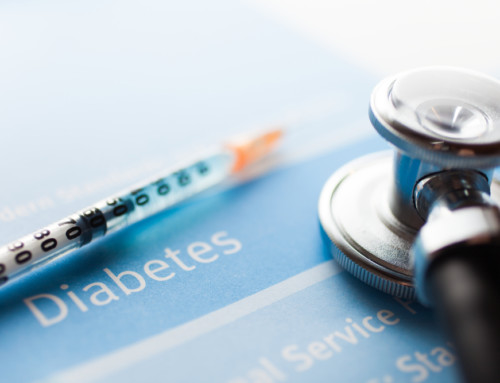 Updated May 26, 2022
Updated May 26, 2022
If you have type 2 diabetes (diabetes mellitus), you’re likely aware of how critical it is to manage the disease through careful monitoring of blood glucose levels. Since diabetes often takes an extended time to fully diagnose, it can create both short and long-term side effects based on individual severity. Short-term side effects that may be more immediately obvious include hypoglycemia and hyperosmolar hyperglycemic nonketotic syndrome (HHNS), which create obvious spikes and drops in blood sugar.
Read below to learn about the long-term side effects of type 2 diabetes and how to manage them more effectively. If you have any questions about any information in this article or related to your diagnosis, don’t hesitate to reach out to a Tri-City Medical Center provider for support and guidance. We offer support groups and diabetes management classes that may be valuable to you.
Cardiac
In patients with diabetes, it’s important to understand how changing blood sugar levels can alter blood flow through the body over an extended period of time.
Over time, individuals with diabetes have an increased risk of heart disease and stroke. If you have diabetes, you should know the warning signs for these major health events. Additionally, patients with diabetes are at risk for high blood pressure and damaged blood vessels caused by restricted blood flow from heightened glucose levels.
Visual
Regular eye exams are critical for diabetes patients, as the disease can cause several long-term visual problems. These issues include cataracts, glaucoma, and retinopathy. Retinopathy, in particular, can cause complete loss of vision if not diagnosed at an early stage.
Neural
Although the connection to the nervous system may not be as obvious, heightened levels of blood glucose can seriously affect individual nerves throughout the body. Diabetes patients may experience issues like burning pain, numbness, tingling in the limbs, constipation, and sexual dysfunction.
Since changes to the nervous system affect sensation and perception, diabetic patients must minimize the risk of injuries that result from lack of feeling. Many patients also suffer from foot pain and an increased risk of calluses, infections, and ulcers. Dry, cracked skin is another potential long-term side effect that could lead to complications when combined with other side effects.
Renal
Following diagnosis, diabetes patients should carefully monitor kidney health in order to prevent diabetic nephropathy, a condition in which the kidneys stop removing waste as effectively. Poorly controlled blood glucose levels can create an environment for kidney damage leading to failure or dialysis.
Managing Long-Term Effects
Although long-term risks and side effects can create fear and uncertainty, many of these potential problems can be mitigated with careful maintenance. If you’ve recently received a diabetes diagnosis, or if you’ve been managing the disease for some time, you can benefit from certain action steps that will help you take control of your health.
Blood Sugar
Perhaps the most important factor in managing long-term diabetes side effects is blood sugar. Many doctors and health advisors will recommend proactive at-home monitoring with simple blood tests done by the patient on a regular basis.
By directly tracking HbA1c, a measure of how much glucose attaches to red blood cells over three months, you may be able to better estimate your personal risk for the long-term side effects. Typically, health professionals will designate a set range for your particular blood sugar level and advise you when to pursue medical intervention.
Blood Pressure
Due to an increased risk for heart attack and blood vessel damage, diabetes patients should take precautions with their blood pressure levels. For some, this may mean pursuing medication in order to keep blood pressure within a healthy range. Other lifestyle changes, as discussed below, can also contribute to lower blood pressure readings over time. Along with monitoring blood pressure, your doctor will likely recommend regular cholesterol screenings.
Regular Exercise
A consistent exercise routine has numerous health benefits, including the ability to manage weight, regulate blood pressure, and stabilize cholesterol. While the amount and intensity of recommended exercise can vary person-to-person, 30 minutes of moderate exercise each day is a good benchmark. Always check with your doctor before participating in any new or rigorous exercise routine.
Smoking
Health professionals agree that smoking is the single greatest risk factor when it comes to diabetic complications. Smoking affects other at-risk areas in diabetes patients, including both the circulatory and cardiovascular systems. If you have diabetes, you should seek ways to cease smoking as soon as possible.
Taking Control of Diabetes
Although diabetes can significantly alter your health over time, you have the power to change and control many of the long-term issues associated with the disease. Often, your primary healthcare provider can advise you on tips that will help you maintain a routine, healthy lifestyle.
If you have diabetes, make sure to always follow-up with your Tri-City Medical Center affiliated physician for regular check-ups and screening tests that can contribute to better symptom control.
![Diabetes in the Body: The Different Ways Diabetes Can Affect You [Infographic]](https://www.tricitymed.org/wp-content/uploads/2018/11/diabetes-500x383.png)
